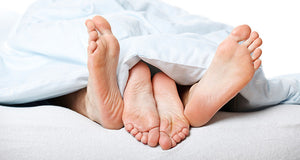The latest research shows that the most fertile days are one and two days before ovulation. The chance of getting pregnant on the day of ovulation is less that 1 in 10, but two days before ovulation it's 1 in 3 - three times higher! The day of ovulation is not the most fertile because of the short life of the egg, only 6 to 12 hours. So don't make the mistake of waiting too long to "baby dance" ))).

Trying to conceive a baby can be tougher than it sounds. Making a baby should be as simple as having sex, but that’s not always the case.
A man's sperm can live for up to five days inside a woman’s reproductive tract. A woman’s egg only lives for about 6-12 hours after it is released. This means that a woman’s egg needs to be fertilized within this 6-12-hour time frame. Furthermore, freshly ejaculated sperm are not able to fertilize a woman’s egg. It takes time for a process known as capacitation to occur. Capacitation is series of changes that sperm go through once they are inside a woman’s reproductive tract that make sperm more mobile and allow them to penetrate the egg. It can take up to 10 hours for a man’s sperm to complete the capacitation process and be able to fertilize a woman’s egg. This is why the five days before ovulation are so important. Once ovulation takes place, sperm have a very brief window of time to fertilize the egg. Having mature sperm (sperm that have gone through the capacitation process already) ready for the waiting egg is the key to successful conception.
The day of ovulation: You might have heard or might believe that the best day to get pregnant is the day that a woman ovulates. It is important to know when you ovulate and to try to time intercourse close to ovulation, but the day of ovulation is not the best day to get pregnant. Researchers have studied the timing of sexual intercourse in relationship to ovulation in order to determine which days are the most likely to result in pregnancy. Surprisingly, according to research published in the Journal of Reproductive Medicine, what they found was that the day of ovulation was not the best day of a woman’s cycle to conceive.
The day before ovulation: Interestingly, the day before ovulation is actually a better day to conceive on than the day of. This may be because sperm that are ejaculated the day before ovulation have had time to mature and reach the egg.
Two days before ovulation: Even more interesting, researchers have found that a woman’s chance of conceiving two days before ovulation is just as likely, if not more likely, as the day before ovulation. What this means for couples trying to conceive is that timing intercourse to occur a couple days before ovulation and the day before ovulation will give them the greatest chance of conceiving.

